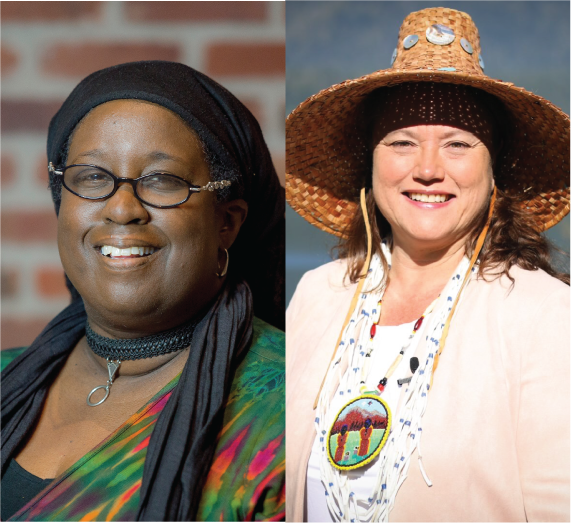Attorney General, GU Law Host Environmental Justice Symposium

Panelists, Researchers Discuss Disproportionate Impacts of Environmental Problems
OLYMPIA, Wash. — On March 23 and 24, State Attorney General Bob Ferguson and Gonzaga University School of Law will convene a symposium to discuss environmental justice issues around Washington and the work being done to address them. The goal of the symposium, titled “Environmental Justice: Race, Poverty and the Environment,” is to provide a platform for communities disproportionately impacted by structural racism, climate change and pollution.
The online, two-day event will include a series of panel discussions that will shine a light on the work these communities across the state are doing to pursue environmental justice. The panels will focus on topics in four major areas: air, water, land and the built environment, and racism. Panelists will discuss their ongoing environmental justice work, examine the latest research and discuss ways to improve environmental protections that meaningfully involve the communities affected most.
The symposium is free, online and open to the public. Registration and a full agenda for the event is available here. Registrants will receive the video conference login information by email closer to the event date. Event participation is capped at 500 at any one time.
The symposium, which starts at 1 p.m. both days, will feature keynote addresses from Jacqueline Patterson, director of the NAACP Environmental and Climate Justice Program, and Fawn Sharp, president of the Quinault Indian Nation and president of the National Congress of American Indians. Ferguson and Gonzaga University School of Law Dean Jacob Rooksby will provide welcome and closing remarks.
“Black, Indigenous and people of color and low-income communities bear the brunt of the impacts of pollution and climate change,” Ferguson said. “In the midst of a climate crisis, environmental justice is more crucial than ever. This symposium brings together community leaders, scientists and advocates with decades of experience to discuss effective and equitable solutions to this urgent crisis.”
“We at Gonzaga Law School are thrilled to be co-hosting this important symposium in conjunction with the Attorney General and environmental stakeholders around Washington” said Rooksby. “This educational opportunity is a critical moment for leaders across sectors to engage seriously with how environmental issues impact efforts to achieve social justice for all.”
The four panels will include representatives from several Washington tribes, community organizers, environmental scientists, environmental attorneys and researchers. The Spokane Tribe will provide an opening and closing prayer. Panelists include Todd Mitchell, environmental director for the Swinomish Department of Environmental Protection, Paulina López, the executive director of the Duwamish River Clean Up Coalition, and Ivy Jaguzny, a youth organizer and press lead for national youth climate activist coalition Zero Hour. A complete list of speakers is available on the conference website.
The Attorney General’s Office will use input from this symposium to inform decisions, propose new policy solutions and target litigation efforts to address critical environmental justice issues.
Questions and input related to the symposium may be directed to symposium@atg.wa.gov.
Environmental Justice Initiative
Research shows that Black, Indigenous, people of color and low-income communities face the worst of the impacts of environmental problems and climate change. For example, low-income housing is more likely to be located near sources of air and water pollution, like highways, landfills or hazardous waste sites. A research team led by the University of Washington and the University of Minnesota found that air pollution disproportionately harms Black and Hispanic Americans — air pollution that’s generated mainly by white Americans. Environmental justice recognizes that disproportionately impacted communities must be meaningfully involved in creating environmental protections.
This symposium is part of the Attorney General’s Office Environmental Justice Initiative, launched last year for the 50th anniversary of Earth Day. As part of this initiative, the office’s Environmental Protection Division has shifted more of its resources to environmental justice work, and is hiring an attorney who will focus solely on environmental justice litigation efforts. The office has hired policy research fellows who are currently working on a report on environmental justice and housing.
- Academics
- Diversity & Inclusion
- Faith & Mission
- Global Impact
- Health & Wellness
- Sustainability
- School of Law
- Environmental Studies
- News Center
